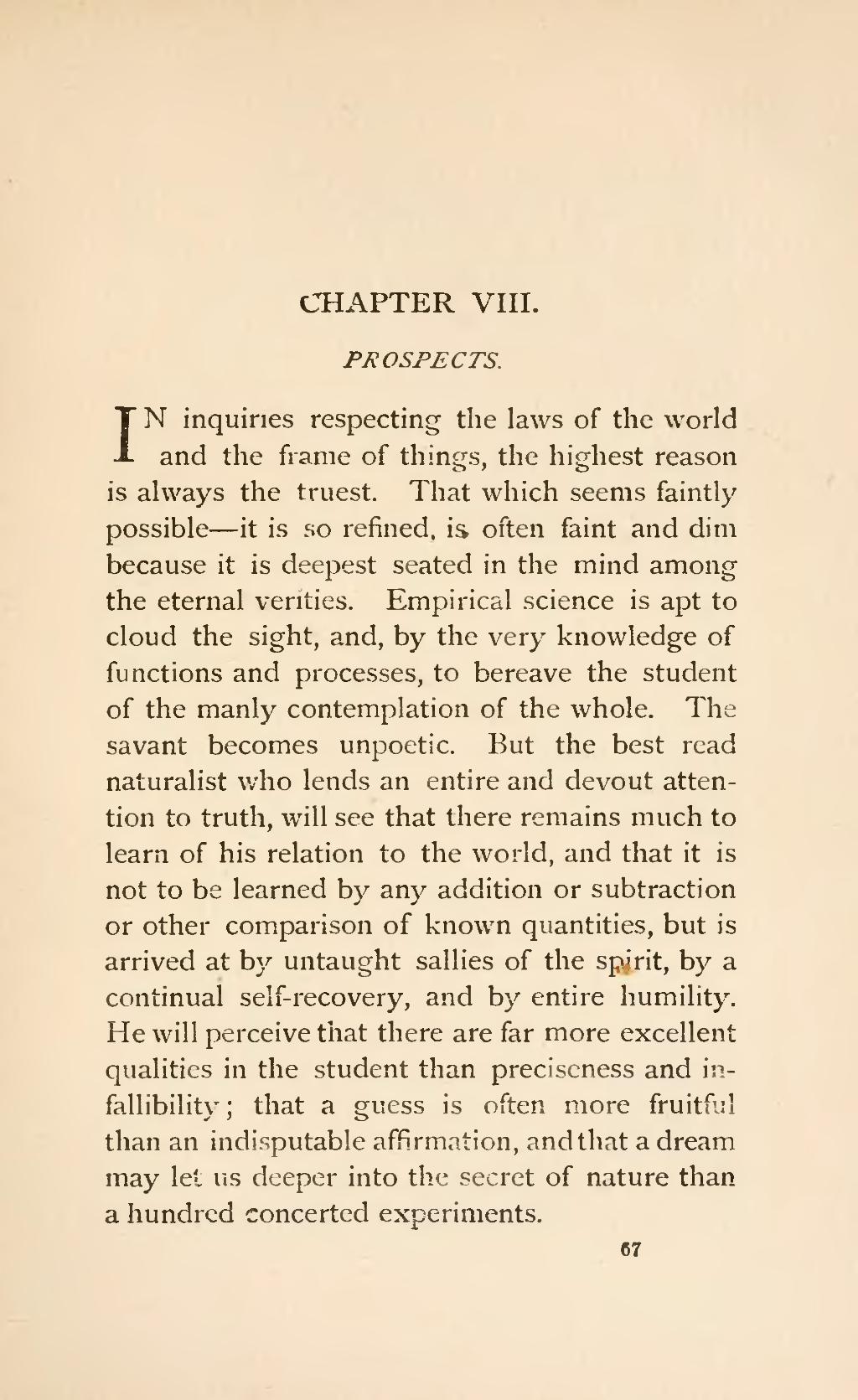CHAPTER VIII.
PROSPECTS.
IN inquiries respecting the laws of the world and the frame of things, the highest reason is always the truest. That which seems faintly possible—it is so refined, is often faint and dim because it is deepest seated in the mind among the eternal verities. Empirical science is apt to cloud the sight, and, by the very knowledge of functions and processes, to bereave the student of the manly contemplation of the whole. The savant becomes unpoetic. But the best read naturalist who lends an entire and devout attention to truth, will see that there remains much to learn of his relation to the world, and that it is not to be learned by any addition or subtraction or other comparison of known quantities, but is arrived at by untaught sallies of the spirit, by a continual self-recovery, and by entire humility. He will perceive that there are far more excellent qualities in the student than preciseness and infallibility; that a guess is often more fruitful than an indisputable affirmation, and that a dream may let us deeper into the secret of nature than a hundred concerted experiments.
